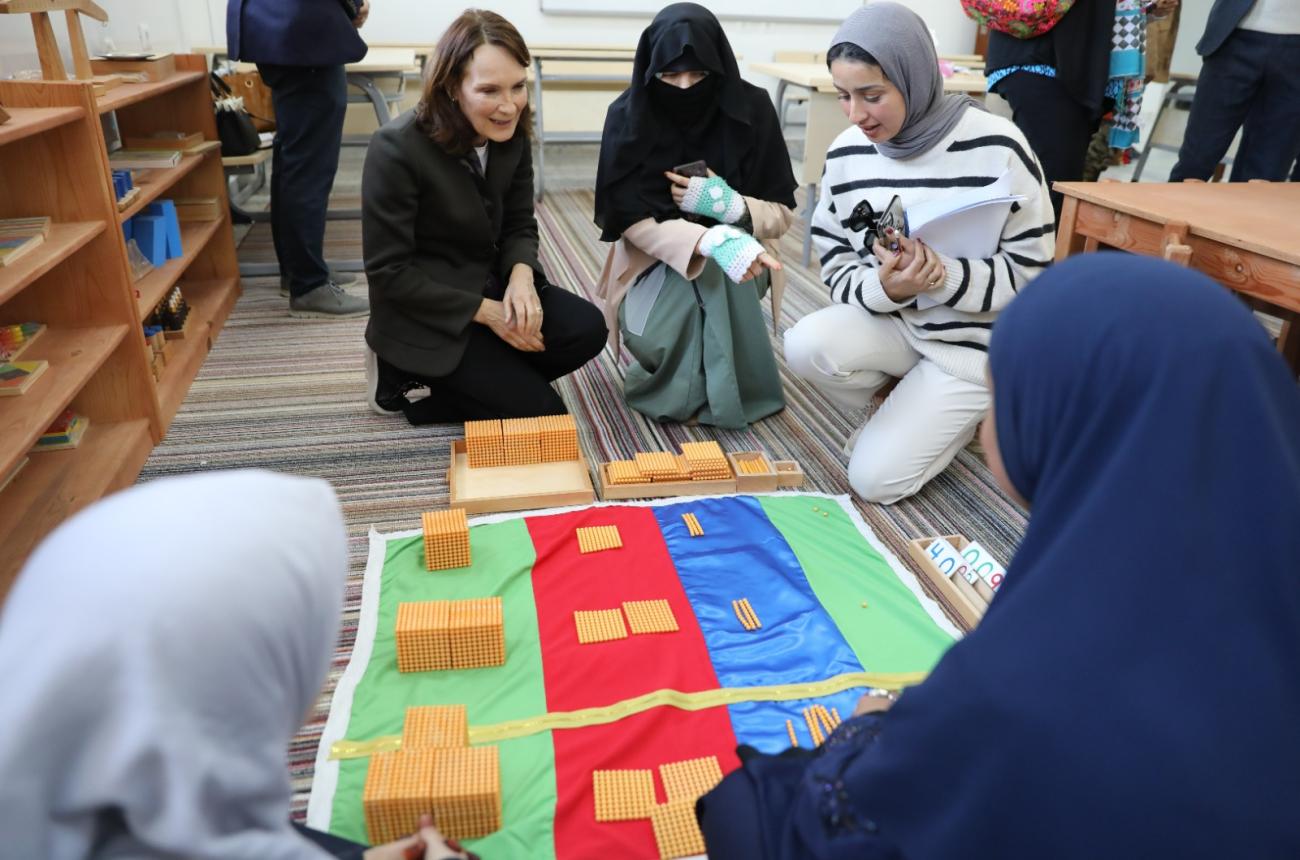Deputy Special Representative of the Secretary General and Resident and Humanitarian Coordinator, Georgette Gagnon joined specialist teachers and children with disabilities to see the impact of a newly implemented inclusive Montessori classroom in Zliten’s Hassam Ben Alhaithem school and to learn about the challenges educators face.
As part of its ‘No Difference’ programme, UNICEF is collaborating with the Ministry of Education’s National Integration Project to install 40 Montessori rooms in integrated public schools across Libya, and 10 rooms at Baity Centers, providing access to learning for children with disabilities. The rooms are equipped with inclusive Montessori learning resources, and 40 teachers have also been trained to coach further specialist teachers across Libya.
“Teachers and education professionals all highlight the importance of these rooms in providing access to education for all children and their specific learning needs,” said DSRSG Gagnon who was joined by UNICEF’s Head of Education, Vanessa Lee, in discussions with Zliten’s Education Director Ismail Ahmed Alhwedi, Director of Zliten’s Department of Special Needs, Jamal Alnakosh, and school principal Rabea Amer Algedar and to observe a lesson in the Montessori classroom.
The educators highlighted that further support is needed to ensure that a larger number of children with disabilities in schools across the municipality have access to these resources, noting the need for Montessori rooms to be installed in five schools and increased numbers of trained teachers.
In response, DSRSG Gagnon requested the Ministry of Education to increase the number of classrooms available, adding “The UN is ready to provide more technical support to the Montessori resource rooms including teacher training and equipment.”
Parents also need to be supported through awareness raising which addresses the stigma faced by those with disabilities, said Alhwedi, adding that within the school children with disabilities are encouraged to be the first to participate in activities and raise their voices.
“For children and youth with disabilities, inclusive education prevents isolation and exclusion from society and gives them greater independence, not only within an educational setting but also later in life,” said UNICEF’s Head of Education, Vanessa Lee. “UNICEF is committed to continue supporting the special needs department and Ministry of Education, in training teachers and staff in the targeted inclusive schools across Libya,” she added.
Hassam Ben Alhaithem school has 580 children attending classes across two shifts, including nine children with disabilities who use the Montessori room daily. UNICEF has trained 219 teachers, including 2 at the school, to use the Montessori rooms. Those trained teachers plan to cascade the training to an additional 600 teachers nationwide.



